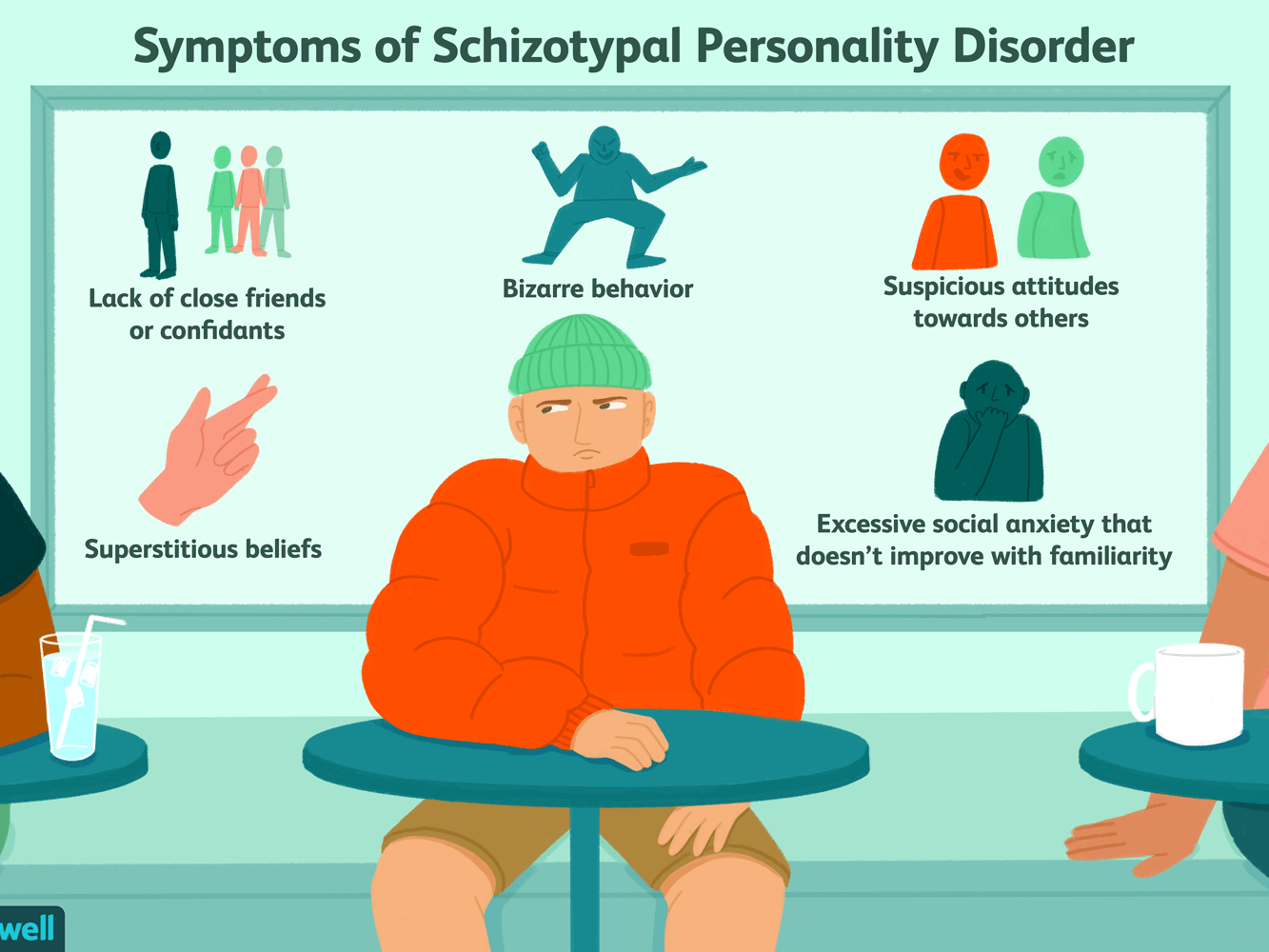PERSONALITY DISORDER
WHAT IS IT?
Our personality is the collection of thoughts, feelings and behaviours that makes each of us the individuals we are.
We don't always think, feel and behave in exactly the same way – it depends on the situation we are in, the people with us and many other interconnecting factors.
However, if you experience significant difficulties in how you relate to yourself and others and have problems coping day to day, you may receive a diagnosis of personality disorder.
"The important thing to remember is that we're not broken, we just think differently and experience the world in a different way... there's no shame in doing whatever we need to do to cope with our emotions in a safe and supportive way."
WHAT ARE SOME OF THE COMMON SYMPTOMS?
You might be given a diagnosis of personality disorder if all of these apply:
-
The way you think, feel and behave causes you significant problems in daily life. For example, you may feel unable to trust others or you may often feel abandoned, causing you or others distress in day-to-day relationships.
-
You experience these problems across different aspects of your life. For example, you may struggle to start or keep friendships, to control your feelings and behaviour, or get on with people. There may be an intensity to your emotions that makes them feel frightening and overwhelming sometimes.
-
These problems continue for a long time. These difficult patterns may have started when you were a child or teenager and can carry on into your life as an adult.
-
These problems are not solely caused by a substance or a medical condition. For example, using drugs or medication can cause changes in people, as can the physical effects of experiences like head trauma.
WHAT ARE SOME OF THE TYPES OF TREATMENT?
The treatment that's best for you depends on your particular personality disorder, its severity and your life situation. Often, a team approach is needed to make sure all of your psychiatric, medical and social needs are met. Because personality disorders are long-standing, treatment may require months or years.
Psychotherapy, also called talk therapy, is the main way to treat personality disorders.
Your treatment team may include your primary doctor or other primary care provider as well as a:
-
Psychiatrist
-
Psychologist or other therapist
-
Psychiatric nurse
-
Pharmacist
-
Social worker
If you have mild symptoms that are well-controlled, you may need treatment from only your primary doctor, a psychiatrist or other therapist. If possible, find a mental health professional with experience in treating personality disorders.
WHAT CAN HELP?
'Self-help' tips don't solve the issue. However, they can help you/others feel more in control when experiencing strong emotions.
If you find that 'self-help' isn't enough, consider reaching out to a counsellor or your GP for help managing overwhelming emotions.
01
Be an active participant in your care. This can help your efforts to manage your personality disorder. Don't skip therapy sessions, even if you don't feel like going. Think about your goals for treatment and work toward achieving them.
02
Take your medications as directed. Even if you're feeling well, don't skip your medications. If you stop, symptoms may come back. You could also experience withdrawal-like symptoms from stopping a medication too suddenly.
03
Learn about your condition. Education about your condition can empower you and motivate you to stick to your treatment plan.
04
Get active. Physical activity can help manage many symptoms, such as depression, stress and anxiety. Activity can also counteract the effects of some psychiatric medications that may cause weight gain. Consider walking, jogging, swimming, gardening or taking up another form of physical activity that you enjoy.
05
Avoid drugs and alcohol. Alcohol and street drugs can worsen personality disorder symptoms or interact with medications.
06
Get routine medical care. Don't neglect checkups or skip visits to your primary care professional, especially if you aren't feeling well. You may have a new health problem that needs to be addressed, or you may be experiencing side effects of medication
07
Keep a mood diary. Learning more about your mood patterns can help you to recognise changes. This is also helpful to recognise the good things that have happened to you.
08
Practise being kind to yourself and note the positive steps you've taken or techniques that help. It is easy to think negatively and so just as important to focus on positives every day regardless of how big or small.
09
Make a self care box. you might find it helpful to have some things that help you when you're struggling that you can access easily – a bit like making a first-aid kit for your mental health. Finding positive distractions techniques that work for you
There are no medications specifically approved by the Food and Drug Administration (FDA) to treat personality disorders. However, several types of psychiatric medications may help with various personality disorder symptoms.
-
Antidepressants. Antidepressants may be useful if you have a depressed mood, anger, impulsivity, irritability or hopelessness, which may be associated with personality disorders.
-
Mood stabilizers. As their name suggests, mood stabilizers can help even out mood swings or reduce irritability, impulsivity and aggression.
-
Antipsychotic medications. Also called neuroleptics, these may be helpful if your symptoms include losing touch with reality (psychosis) or in some cases if you have anxiety or anger problems.
-
Anti-anxiety medications. These may help if you have anxiety, agitation or insomnia. But in some cases, they can increase impulsive behavior, so they're avoided in certain types of personality disorders.
EXTERNAL INFORMATION, SUPPORT AND ADVICE






















































 |  |  |
|---|---|---|
 |  |  |
 |  |  |
 |  |  |
 |  |  |
 |  |  |
 |

